Main Adjectives Takeaways:
- An adjective is a word that describes or modifies nouns or pronouns.
- They can describe quantity, color, size, condition, origin, appearance, personality, and time.
- They can provide degrees of comparison.
- Attributive adjectives precede the noun they’re describing.
- Predicate adjectives follow verbs such as become, look, or seem.
- In certain situations, adjectives can become nouns, and vice versa.
- Don’t rely on adjectives just to make prose prettier or shore up weak nouns.
Adjectives are words that describe, identify, or quantify nouns and pronouns. They provide details and answer questions such aswhose, how many, what type, and which one.
Understanding when and how to use this part of speech gives you an effective way to add color and clarity to your writing. And, to avoid using them incorrectly.
What Are Adjectives?
Adjectives describe, or modify, nouns and pronouns. Essentially, they provide the details that make nouns and pronouns more specific. An adjective describes the quality or state of being of a noun. This part of speech also describe the quantity or number.
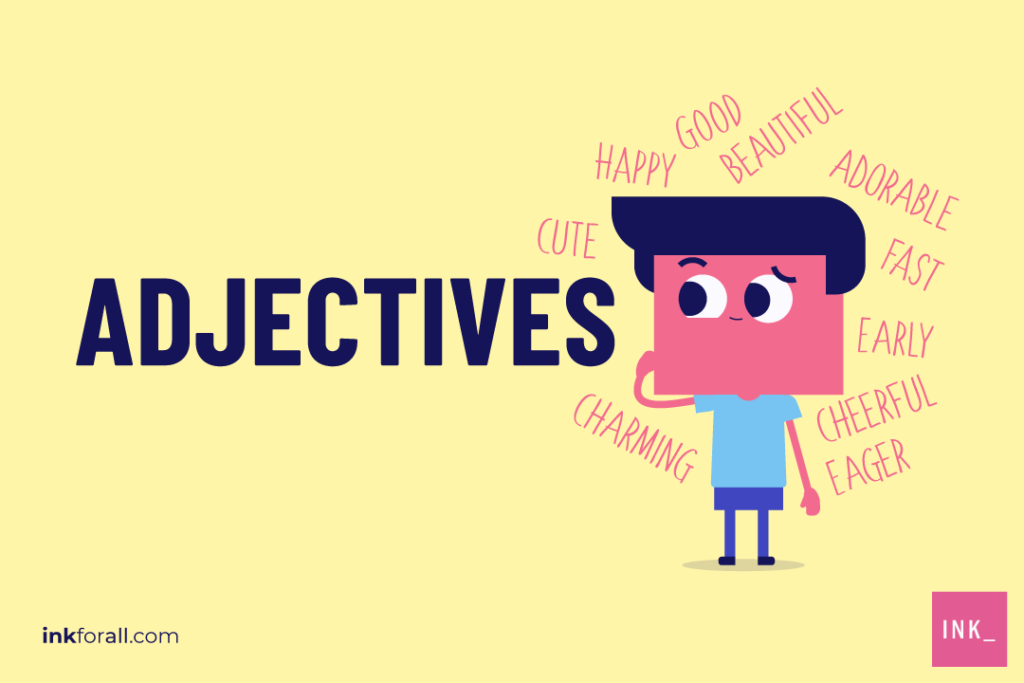

Each of these descriptive words typically fall into one of the following categories:
- General appearance (pretty, bold, unattractive)
- Shape and size (circular, narrow, deep)
- Color (auburn, inky, clear)
- Condition (damaged, pristine, frozen)
- Quantity (plentiful, countless, few)
- Personality (quirky, funny, heroic)
- Time (yearly, prehistoric, concurrent)
- Sense (ear-splitting, tasty, prickly)
What Are 10 Adjectives Examples ?
As words that provide details about a noun or program, there are almost limitless examples of adjectives. They often answer questions such as whose, how many, what type, and which one.
What Are the 8 Types Of Adjectives?
There are eight types of adjectives. And, each adjective falls into one of these categories.
Which category depends on its placement and relation with other parts of speech in a sentence.
For instance, these types include descriptive, distributive, interrogative, possessive, proper, quantitative, sequence, or indefinite.
1. Descriptive
Descriptive adjectives are usually the first kind that come to mind when think about this part of speech.
However, these words assign a quality or attribute to a noun or pronoun. This helps you define your subject clearly and exactly.
2. Distributive
Distributive adjectives point out or draw attention to a particular noun in a crowd. Place these before the noun they’re modifying. The noun they modify is usually singular.
3. Interrogative
These are descriptive words that ask a question when paired with a noun or pronoun.
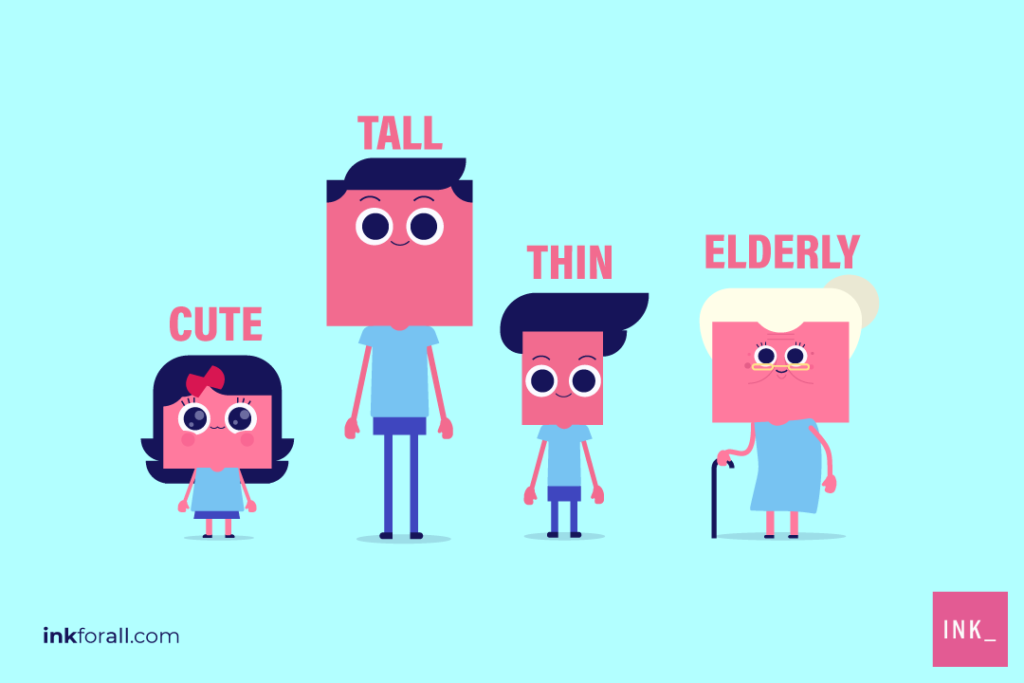

4. Possessive
This kind of descriptive word shows ownership.
5. Proper
We derive proper adjectives from proper nouns. This means that they stand for proper nouns. As a result, you need to capitalize the first letter of these descriptive words.
They identify a specific place, person, or thing. They may be hyphenated.
6. Quantitative
On the other hand, Quantitative adjectives describe how much or how many noun or pronoun they’re modifying.
7. Sequence
Although sequence adjectives are similar to quantitative in that they assign numbers to a noun or pronoun, there’s one significant difference. The former use ordinal numbers to imply order.
8. Indefinite
Adjectives generally add specificity to nouns or pronouns. But, they can also point out nonspecific items.
What Are Positive Adjectives?
Positive adjectives are words that you use to describe emotions about people, events, places, ideas, or objects that made you feel good. By using positive adjectives, you’ll be able to express your happy thoughts effectively, helping people better understand your feelings or disposition. Here are some examples:
As you may have noticed, the adjectives we used let you have a mental image of the positive emotions we’ve described.
What Are Negative Adjectives?
Besides positive adjectives, there are also negative adjectives. In contrast, negative adjectives describe bad emotions. And although these two function the same way, it’s important that you choose your negative adjectives carefully. Otherwise, you might end up offending someone or evoking unintended feelings from others. The following are examples of negative adjectives.
Unlike positive adjectives, negative adjectives are often used by people in arguments to insult or berate others. Again, try to use these words sparingly to avoid conflict or upsetting others.
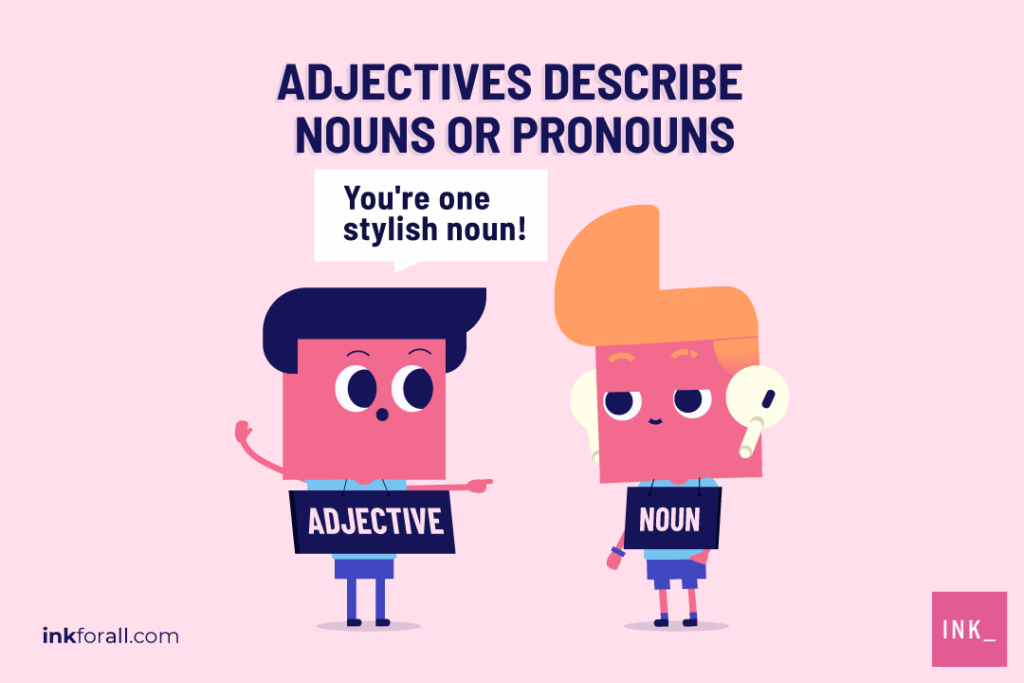

What Are the Degrees Of Comparison Of Adjectives?
You can also use adjectives to define something to a certain degree. They come in three-degree levels: positive, comparative, and superlative.
1. Positive
Also known as absolute, you may use the positive degree when you’re referring to a single noun.
2. Comparative
This is your go-to adjective type when you’re comparing two of something.
- Typically, adding -er to an adjective creates the comparative form (e.g., smarter, taller, narrower).
- Other descriptive words become comparatives by adding the word more in front of them (e.g., more beautiful).
- All comparatives should be paired with the word than.
- If the adjective ends in “y,” the “y” should be changed to an “i” before adding -er (e.g., pretty becomes prettier).
3. Superlative
When comparing three or more things, the superlative degree is the one to use.
- It’s typically created by adding -est to the adjective (smartest, tallest, narrowest) or pairing the adjective with the word most (most beautiful).
- If the adjective ends in “y,” the “y” should be changed to an “i” before adding -est (e.g., pretty becomes prettiest).
The Three Cs of Multipart Adjectives: Coordinate, Cumulative, and Compound
Sometimes you just need a second adjective to complete the job.
This is where coordinate and cumulative adjectives come into play. They are words that you can combine to provide additional meaning to a single noun or pronoun.
1. Coordinate Adjectives
Both words in a coordinate adjective are equally important. But, a comma should separate them.
2. Cumulative Adjectives
Next, Cumulative adjectives are multiple words that build on one another to create meaning. However, they must maintain a particular order to make sense. They’re easy to recognize because they can’t be reversed and won’t make sense if you use and between them.
3. Compound Adjectives
Finally, Compound adjectives contain more than one word. They are typically linked together by a hyphen.
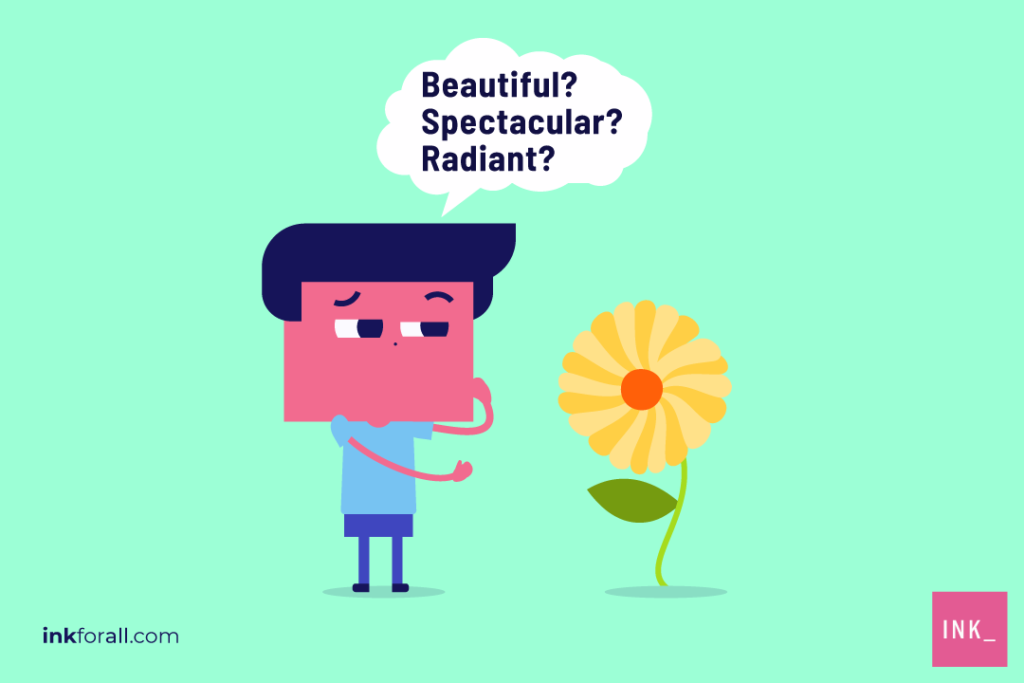

The Placement of Adjectives
Adjectives may be broken down into types based on their placement in a sentence and their relationship to other parts of speech.
1. Attributive
These are words that are placed immediately before the noun that they’re describing.
2. Predicate
These descriptive words typically appear after a linking verb.
3. Postpositive
Postpositive adjectives are descriptors that immediately follow a noun or pronoun.
What Are Gradable and Non Gradable Adjectives?
Almost all adjectives are gradable, letting their meaning be altered by strategic placement of adverbs such as:
- fairly
- rather
- very
- extremely
- dreadfully
- slightly
- reasonably
By pairing gradable adjectives with these adverbs, their meaning can increase or decrease in intensity.
What Is the Difference Between Adjectives And Adverbs With Examples?
Due to their similar sound and appearance, these two parts of speech often get mixed up. Thankfully, there are easy ways to distinguish between the two.
It’s all in the Name
To distinguish between adjectives and adverbs, all you have to do is look at the name: adverbs. As its name implies, adverbs are used to modify verbs, whereas adjectives are used to modify nouns or pronouns.
Look for the -LY
Many adverbs end in -ly, making them easy to identify.
I Feel Bad vs. I Feel Badly: A Brief Comparison
It’s helpful to examine individual sentences when trying to understand the difference between adjectives and adverbs.
For example, in the sentence, “Bob feels bad,” bad is an adjective. Essentially, in this sentence, Bob feels under the weather.
On the other hand, in the sentence, “Bob feels badly,” badly is an adverb (note the -ly!). In this case, feeling badly refers to a poor sense of touch and Bob’s inability to experience tactile sensations.
Abracadabra! When Nouns Become Adjectives and Vice Versa
Here’s where things get tricky: sometimes the parts of speech can masquerade as other parts of speech.
In certain circumstances, nouns modify or clarify other nouns. This effectively turns them into adjectives.
These converted nouns are known as noun modifiers or adjectival nouns.
On the flip side, adjectives can also function as nouns.
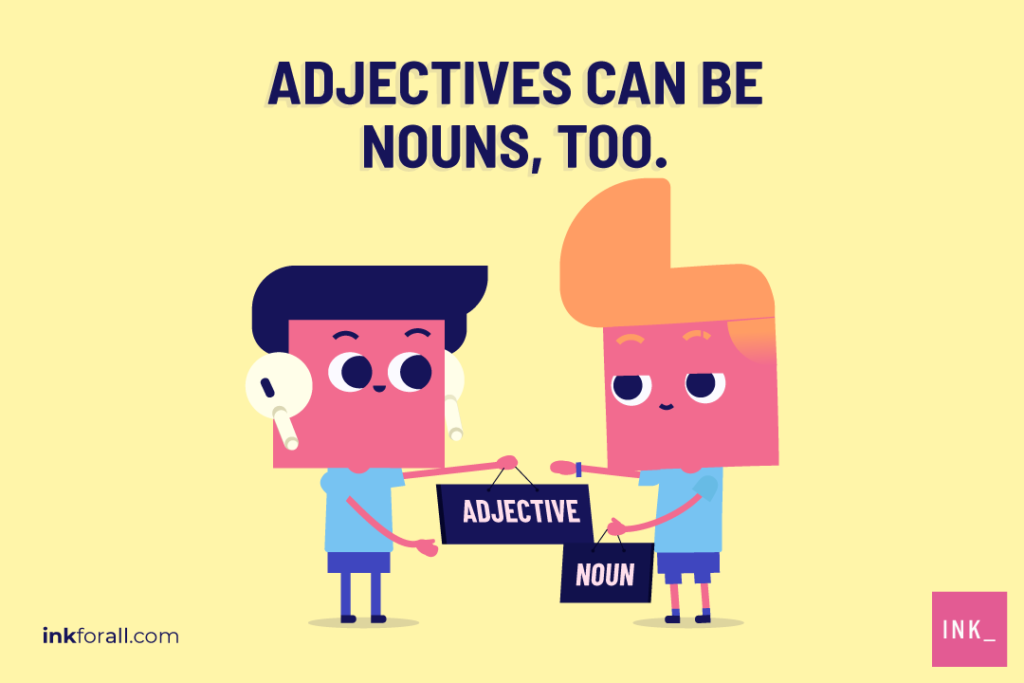

This happens when they describe groups of people. In these circumstances, the noun being modified drops away. As a result, the adjective takes the place of the noun.
From Clunky to Clear: Choosing Good Adjectives
Descriptive words are also one of the most overused parts of speech, particularly in creative writing. That’s why it’s so important to choose the right ones for your sentences—if you need any at all.
Ultimately, a good adjective is one that adds meaning to your sentence. It should quantify, clarify, and enhance. What it shouldn’t do is shore up a weak noun or exist solely to add prettiness to your prose.
After all, that big house may really be an estate—and that loud, booming shout? Well, it’s really just a shout after all, plain and simple.
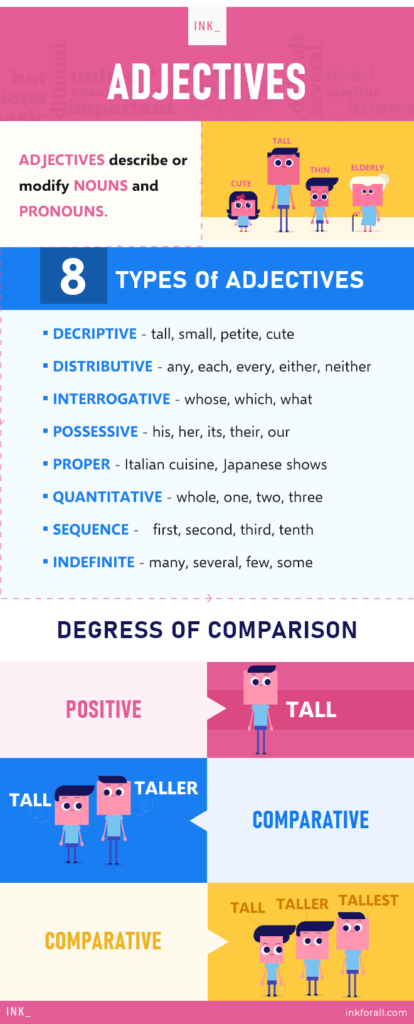

List of Common Adjectives
Color
bleak bright cool dark earthy fluorescent glowing glossy hazy intense iridescent light lustrous matte monochromatic natural neutral opaque pale pastel solid translucent vibrant warm
Quantity
all countless each enormous even every few finite first huge immense indefinite infinite last many most odd one several some three two unlimited varying
Taste
acidic awful bad bitter bittersweet bland citrusy cold earthy fresh fruity good hot pleasant refreshing rich salty smoky sour spicy sweet tangy warm zesty
Weather
beautiful bright calm clear cold dry fair favorable harsh hot lovely mild nice pleasant rainy seasonable serene stormy sunny superb terrible unseasonable wet windy wintry
Size
colossal considerable enormous exact extra small gigantic huge ideal immense large massive maximum medium moderate monstrous ordinary small standard thick thin unequal unusual varying vast
Time
ancient appropriate better brief certain considerable desired future given happiest hard later lost modern nice past precious prehistoric present quiet real short spare usual valuable
Shape
angular broad circular crooked cylindrical flat narrow oval perfect rectangular round skinny slender slim square tapered three-dimensional triangular two-dimensional wide
Sound
earsplitting faint gentle harsh husky loud low low-pitched melodic muffled noisy quiet raspy screaming screech shrill silent soft squeaky squeal thunderous velvety
Behavior
acceptable amusing callous cautious dignified emotional gentle haughty irresponsible lax mysterious obnoxious odd polite proper scandalous selfish sly strange unassuming unconventional weird
Situations
awkward critical deplorable desperate embarrassing financial happy horrible imaginary interesting make-believe miserable peculiar perilous present pretend real romantic strange temporary terrible uncomfortable undesirable unhappy unpleasant
Feelings
angry annoyed apprehensive bitter deep emotional happy heartfelt helpless infectious overpowering pent-up profound quiet raw sad sentimental uneasy
Texture
airy bumpy chalky chewy creamy crispy crumbly crunchy crusty delicate dry flaky fluffy fuzzy gooey greasy hard mushy powdery prickly rough rubbery silky slimy smooth
Just a Quick Adjectives Quiz to Help You Master Your new Skills
Adjective Question #1
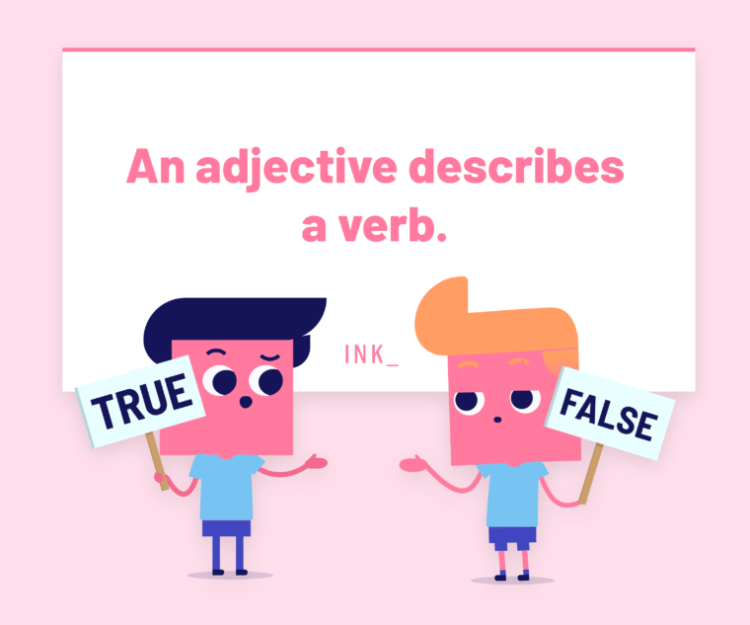

The answer is FALSE. Adjectives can only describe or modify nouns and pronouns.
Adjective Question #2
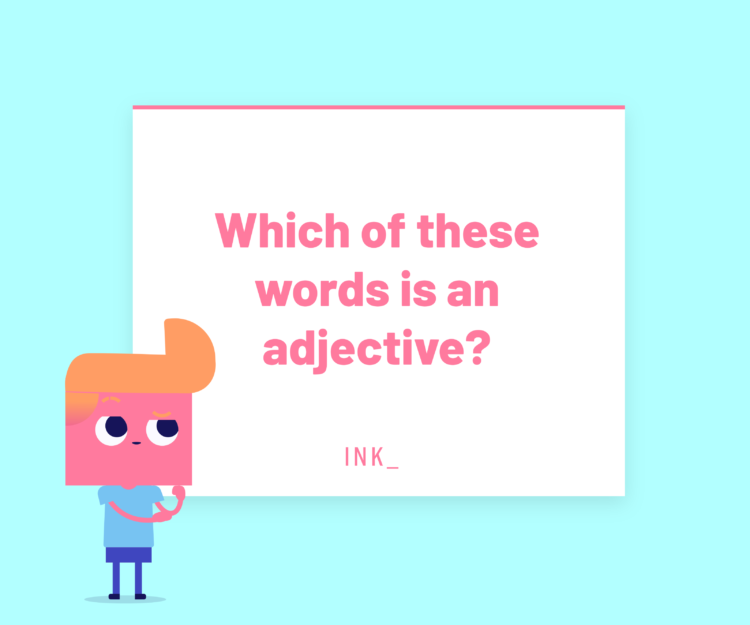

The answer is DELICIOUS. Delicious is a descriptive adjective — it describes food's taste.
Adjective Question #3
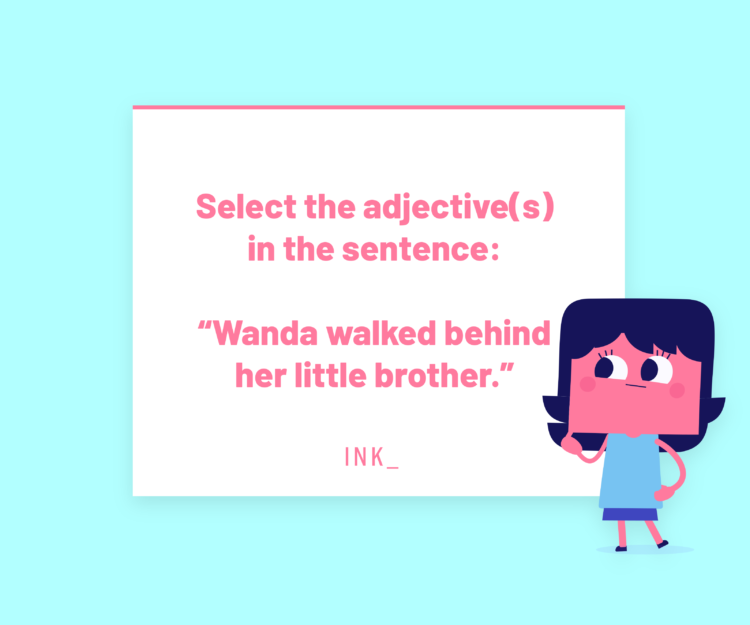

Please select 2 correct answers
The answers are HER and LITTLE. Her is a possessive adjective, while little is a quantitative adjective that describes the brother's size.
Adjective Question #4


Please select 3 correct answers
The answers are FIVE, MANY, and FEW. Quantitative adjectives describe the exact or approximate amount of a noun (think quantity).
Adjective Question #5
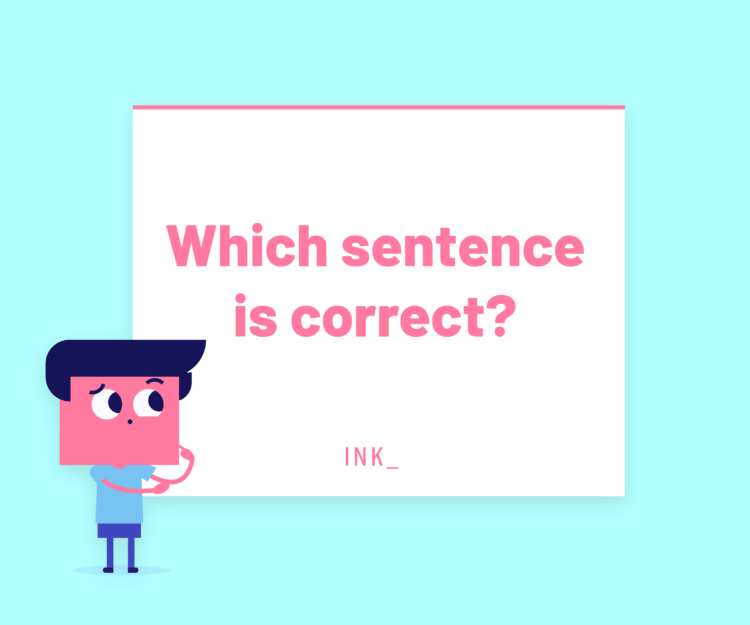

The answer is B. Separate the two words in a coordinate adjective with a comma.
Adjective Question #6
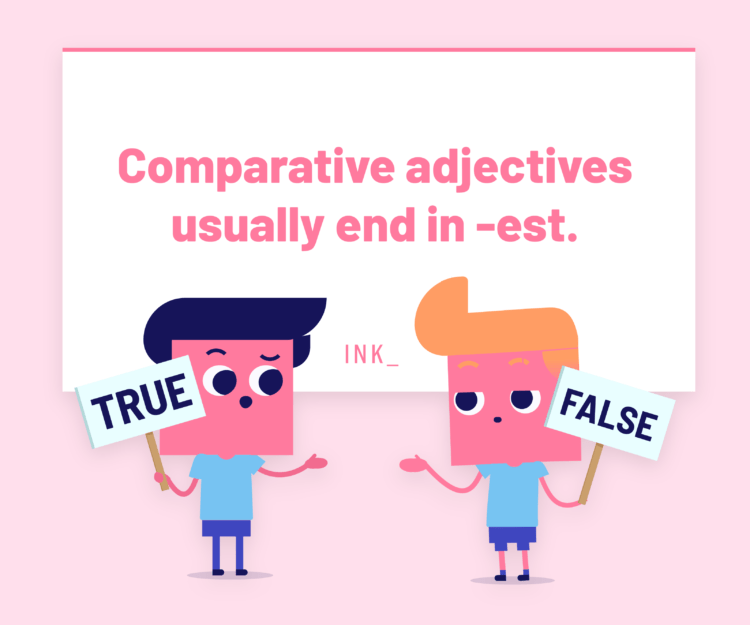

The answer is FALSE. The comparative form of an adjective usually ends in -er. For example, She is taller than her brother.


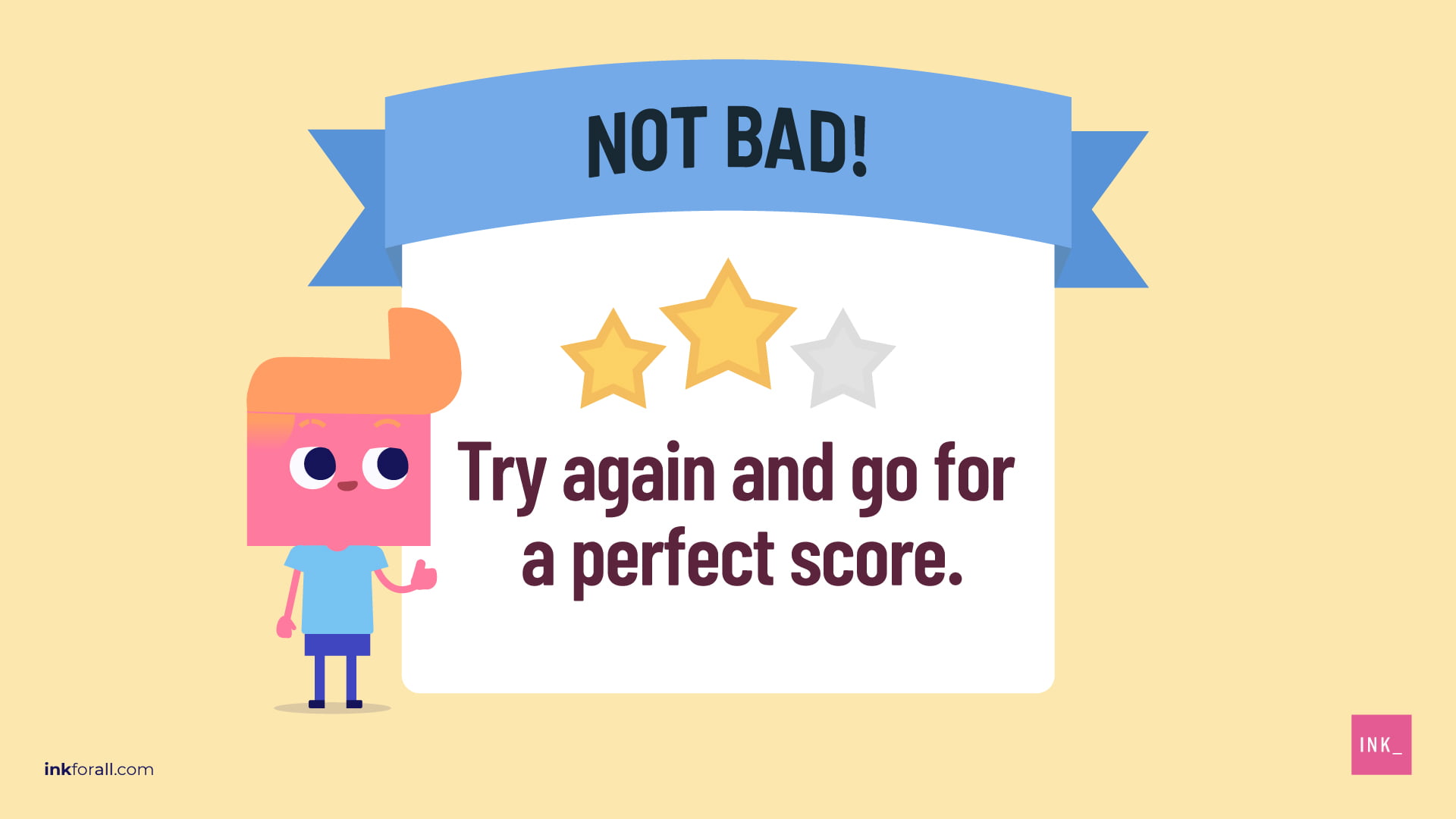

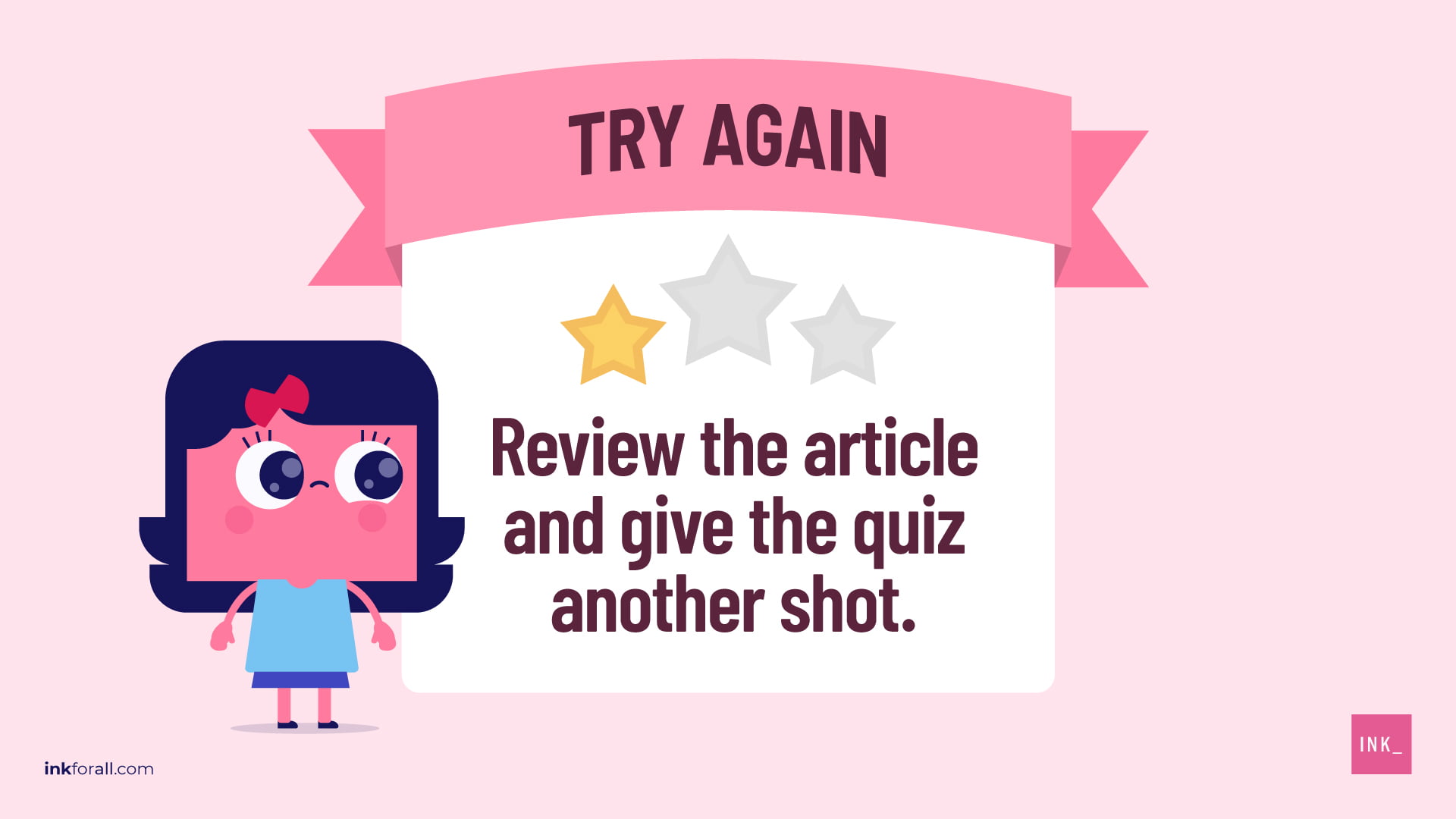


I think you guys should create a meeting program and help some students in English because you all look like. Good teachers
Thank you, Jerome! You’re too kind! We have several new articles and videos we plan to launch soon. Stay tuned!
ok then be waiting
tank you krista
Thank YOU, Imad!